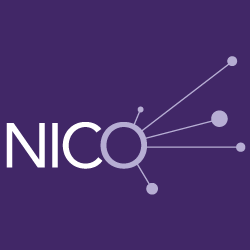Events
Past Event
WED@NICO SEMINAR: Ned Smith, Northwestern University "How 'Market Value' Can Increase Discrimination Even When Most Firms Are Fair"
Northwestern Institute on Complex Systems (NICO)
12:00 PM
//
Lower Level, Chambers Hall
Details

Title:
Can One Bad Apple Spoil the Bushel? How "Market Value" Can Increase Discrimination Even When Most Firms Are Fair.
Speaker:
Ned Smith, Associate Professor, Kellogg School of Management, Northwestern University
Talk Abstract:
In 1957 economist Gary Becker first published "The Economics of Discrimination." In it Becker argued that efficient and competitive markets should eliminate discrimination in hiring and wage setting over the long run. Becker's argument was as profound as the logic underlying it was straightforward; because discriminating firms are willing to pay a premium to hire only those workers who fit a desired profile, competition should drive discriminating firms out of business and any wage gaps resulting from discrimination should be eliminated away over time. For Becker, this process lends to a remarkable outcome: the presence of even a single non-discriminating employer in a market otherwise composed of discriminators will reduce average discrimination to zero in equilibrium.
We begin with a contrary proposition: the presence of even a single discriminating employer in a market otherwise composed of non-discriminators can, under certain circumstances, increase average discrimination in the market to the level of the single discriminator (or greater) over the long run. Our model turns on what we view to be an increasingly common practice in professional hiring and wage setting; that is, looking to "the market" for guidance in evaluating a given job candidate. To be more specific, we endogenize the price setting process by allowing for interdependence between a given job candidate's "market value" and her valuation as determined by individual hiring firms.
Our adjustment to Becker's model is both theoretically significant and empirically justified. As "financial thinking" (Davis 2009) increasingly dominates contemporary economic and social spheres of life, and "market logics" continue to permeate labor markets in particular (Nelson and Bridges 1999), it is well time to consider the effects and potential consequence of over-weighting market-based methods of valuation at the detriment of other methods of valuation. We build explicitly on Becker's model, itself a promising testament to the power of markets for eliminating prejudice and discrimination under certain conditions, to demonstrate how an overreliance on markets can spread prejudicial and discriminatory behaviors under other conditions. For all the promise of Becker's original model we demonstrate an equally remarkable, but also very plausible, consequence. Discriminatory hiring practices and wage setting can spread through a market like an invisible virus, infecting even those who believe themselves immune.
Speaker Bio:
Ned Smith is an Associate Professor of Management and Organizations at the Kellogg School of Management, Northwestern University, and a core faculty member of the Northwestern Institute for Complexity (NICO). Professor Smith has two main areas of research. First, he studies the effects of social structure on the behavior and decision-making of individuals and organizations. His research in this area was awarded a Kauffman Foundation Fellowship in 2009. More recently, Ned's articles on investor decision-making in the hedge fund industry ("Identities as Lenses," Administrative Science Quarterly), and market responses to new executive appointments ("Better in the Shadows", with Kevin Gaughan) were awarded the (2012) Best Published Paper Award by the Academy of Management and the (2016) Best Paper Award by the Academy of Management, respectively. Second, Ned works to connect research on cognitive processes and network theories of social capital to better understand how people utilize (and squander) the resources available to them in their social networks. This research analyzes how people mentally construct their social worlds, i.e., their social networks, according to various psychological and situational factors.
Live Stream:
Time
Wednesday, November 1, 2017 at 12:00 PM - 1:00 PM
Location
Lower Level, Chambers Hall Map
Contact
Calendar
Northwestern Institute on Complex Systems (NICO)
WED@NICO Winter Seminar Series returns on January 28th!
Northwestern Institute on Complex Systems (NICO)
12:00 PM
//
Lower Level, Chambers Hall
Details

The Wednesdsays@NICO speaker series will return for the winter quarter on January 28th, 2026, running through March 4th. Speakers will be announced in January!
Location:
In person: Chambers Hall, 600 Foster Street, Lower Level
Remote option: Zoom links will be provided
About the Speaker Series:
Wednesdays@NICO is a vibrant weekly seminar series focusing broadly on the topics of complex systems, data science and network science. It brings together attendees ranging from graduate students to senior faculty who span all of the schools across Northwestern, from applied math to sociology to biology and every discipline in-between. Please visit: https://bit.ly/WedatNICO for information on future speakers.
Time
Wednesday, January 28, 2026 at 12:00 PM - 1:00 PM
Location
Lower Level, Chambers Hall Map
Contact
Calendar
Northwestern Institute on Complex Systems (NICO)

